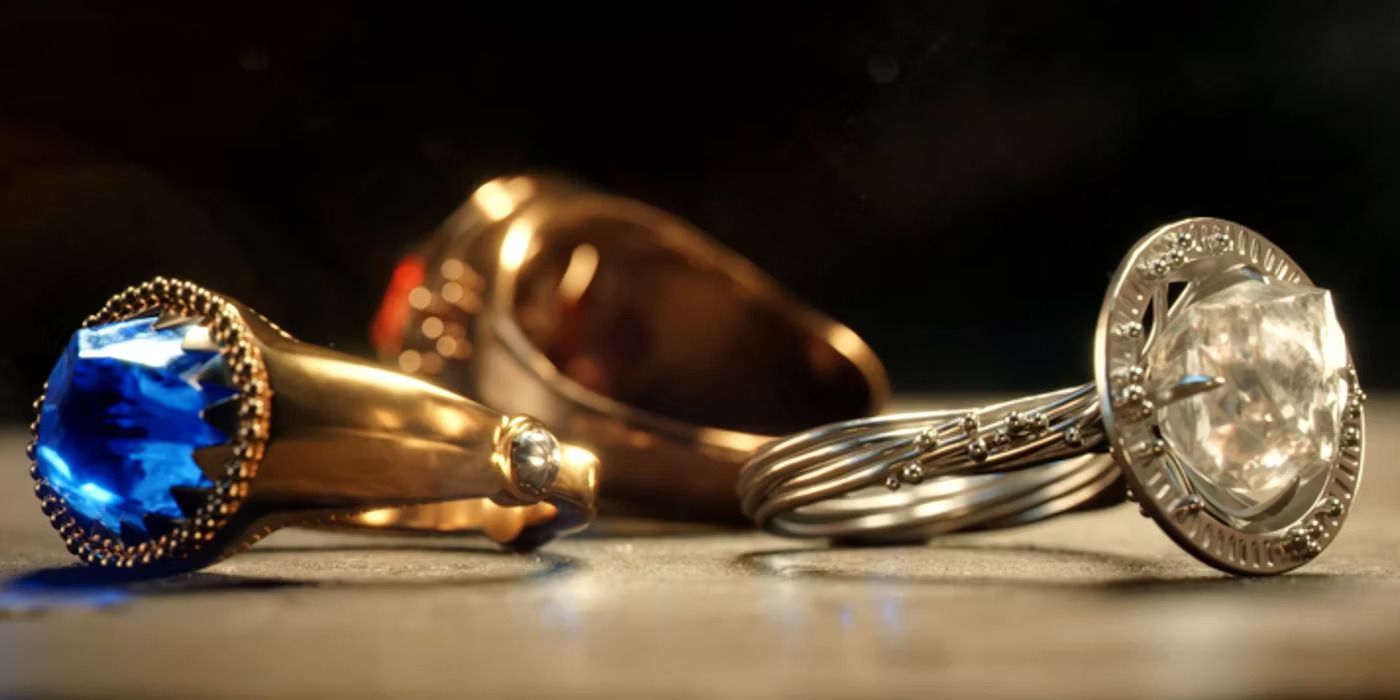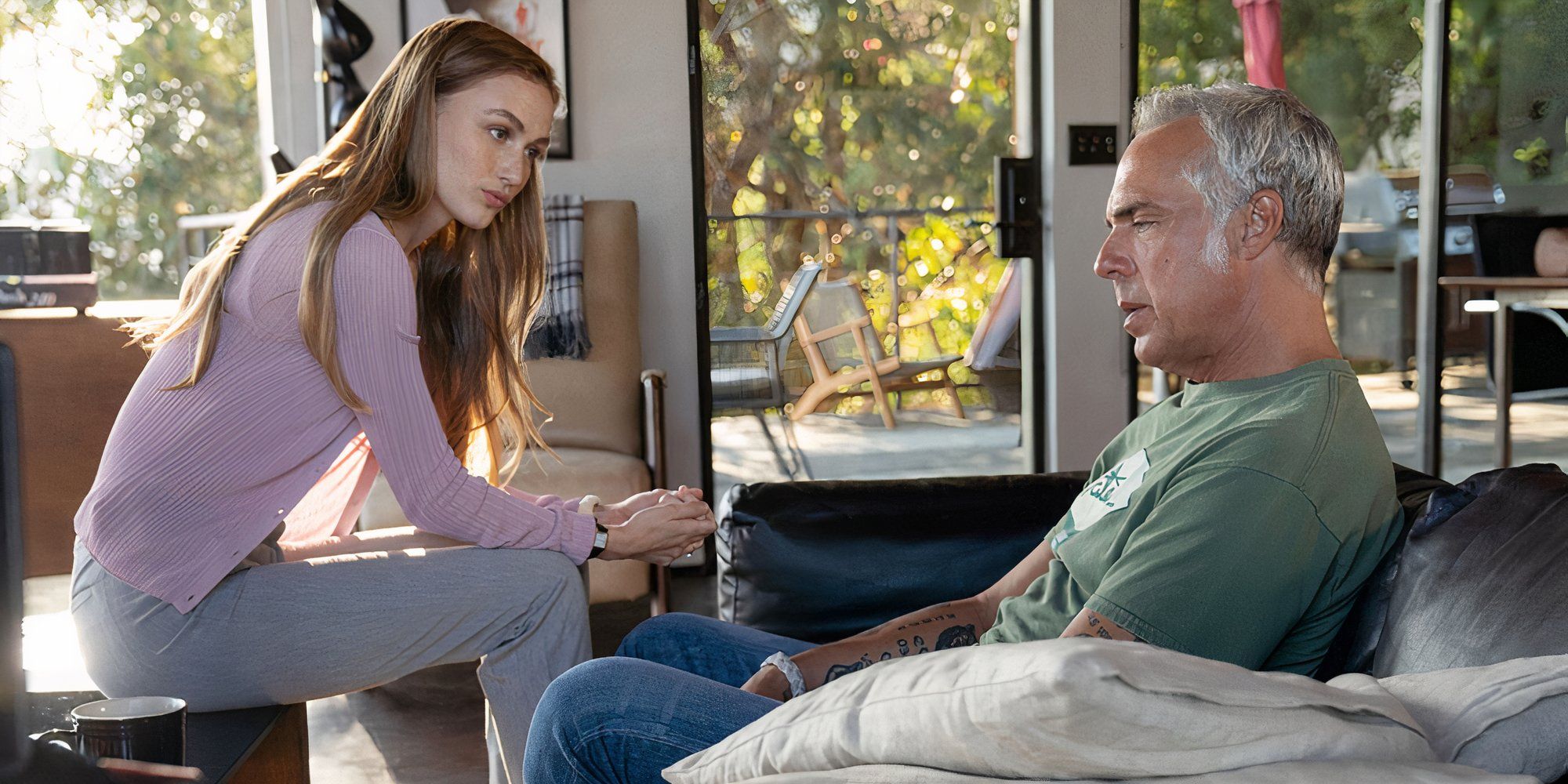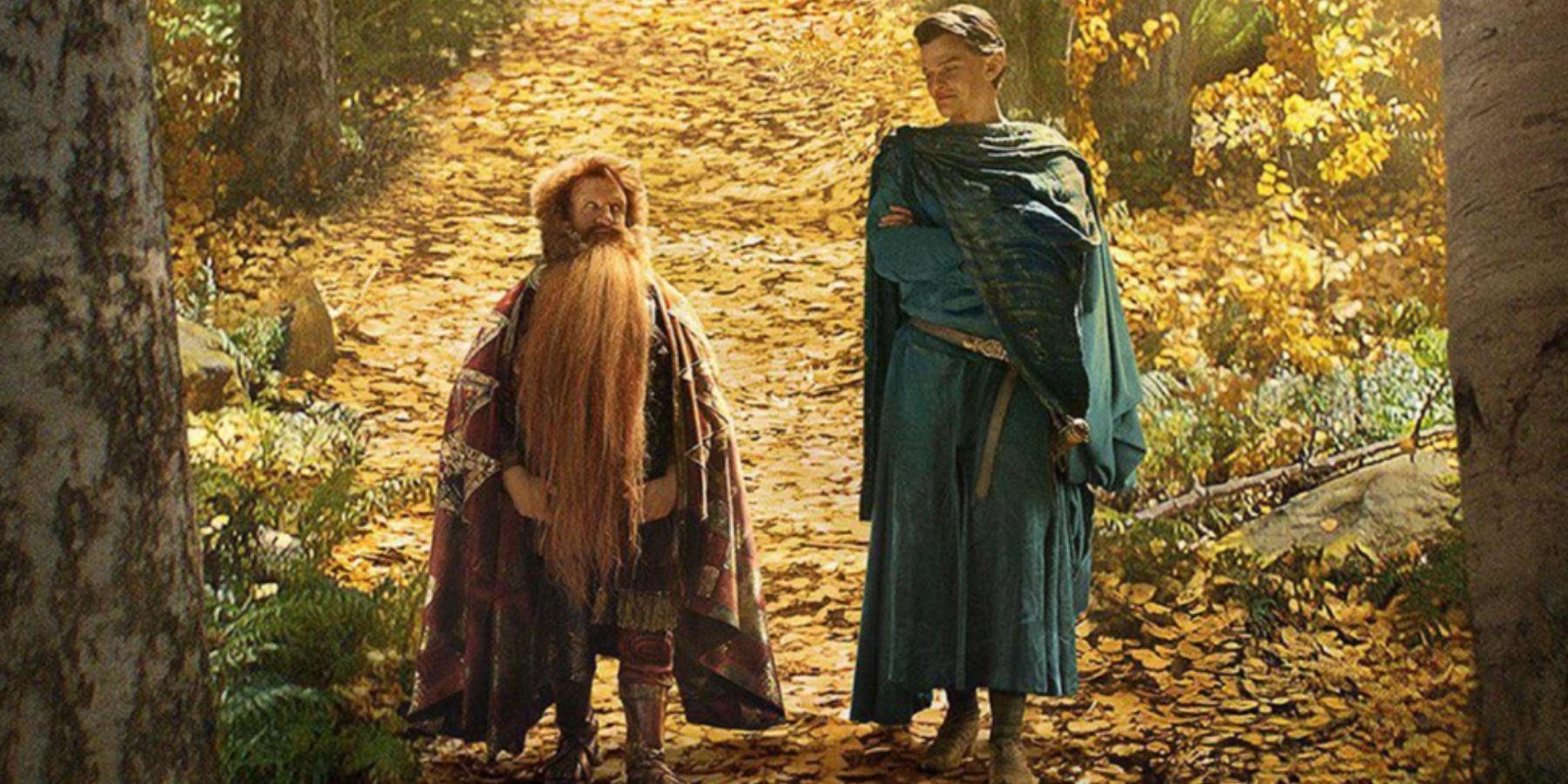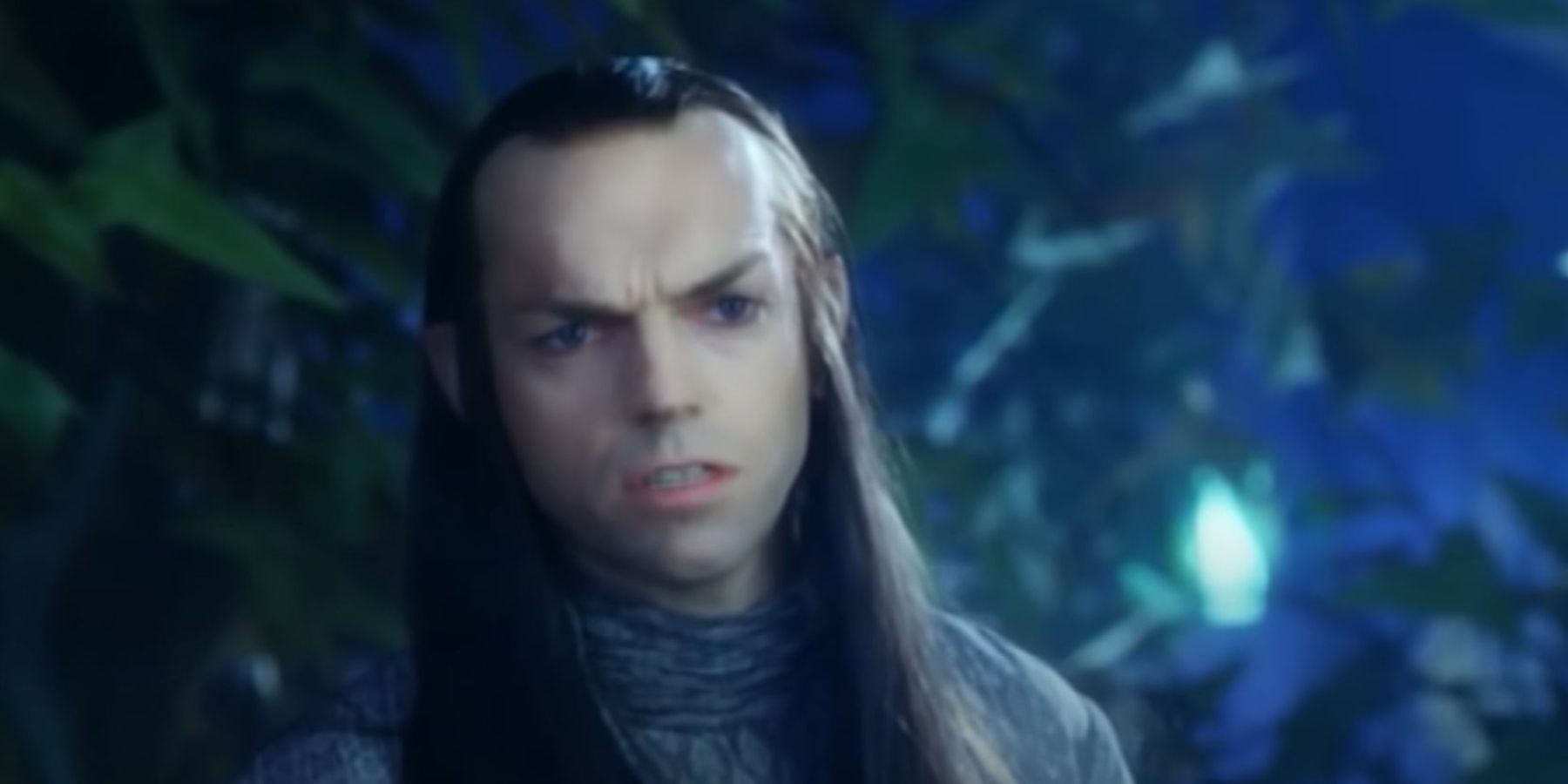Amazon's Rings of Power has proven controversial among fans of J.R.R. Tolkien's The Lord of the Rings books and Peter Jackson's early 2000s adaptation of the trilogy. Though the Amazon series was undoubtedly beautiful and grand in scope, some viewers took exception with what they believed to be deviations in the depictions of classic characters.. The reaction to Morfydd Clarke's Galadriel, in particular, has been loud, ugly, and at times, openly sexist.
While a degree of fan backlash is always expected when someone provides a new take on old characters, Rings' reception has been especially visceral. The series takes place almost five thousand years before the events of Fellowship, and unexpected changes to familiar faces were bound to be made. Elrond Half-Elven is one such familiar face and the changes the show makes to his personality serve to round out his arch from bright-eyed explorer to sagely statesman.
Elrond in The Lord of The Rings
When viewers meet Elrond in the main series, the bulk of his long life in Middle-earth is behind him. All of the greatest triumphs and failures of Elrond's life have already happened, and the elf who calls the famous council to Rivendell in Fellowship is playing the role of venerable guide rather than hero. The fading of the elves is nearing its final point, something that Rings of Power sets in motion, and, like countless elves before him, Elrond is preparing to leave for the Undying Lands of Valinor, effectively leaving the world to its fate.
This apparent apathy towards mortals is a source of conflict between him and his daughter Arwen who has fallen in love with Aragorn, a human, and is willing to sacrifice the eternal paradise that is her Elven birthright just to be with him. But it isn't apathy that drives Elrond's insistence that Arwen leave Aragorn and Middle-earth behind, it is an elder's acceptance of the inevitable. After thousands of years of life, much of it defined by a cycle of cataclysmic conflict, he seems somewhat more resigned to his role as an observer of history than a maker of it.
Elves, during the Third Age, are known for their aloofness. While not evil, many seem unconcerned with the goings-on of Men and only appear inclined to serve the interests of their own realms. While Elrond is far less isolationist than most elf lords, and regularly provides shelter, guidance, and support to Gandalf and the rest of the series' adventurers, he stops short of mobilizing his own forces to aid them directly. It's not that he is unsympathetic to the plight of the people of Middle-earth, it's that he knows that they must ultimately determine their own outcome. Ever-fading, Elrond and the rest of the Elves are losing power, becoming more and more ineffectual, with every day they linger. Thus, for him, those final days seem increasingly like a kind of morbid voyeurism than an actual life.
Yet Elrond cannot divest himself, entirely, of the connection he has to Middle-earth. Futile though the sum of Man's efforts may prove, absent though he will be for the final conclusion, Elrond is compelled to leave behind what power he still can - knowledge. Moreover, it is Elrond, not Gandalf who summoned the nono-Hobbit members of the Fellowship. In uniting the Fellowship, Elrond sought to arm Middle-earth with its best chance at survival, closing the loop on a saga he witnessed with his own eyes. He was there when Isildur failed to destroy the Ring at the close of the Second Age. Its reappearance now is a kind of unfinished business for him, an internal point of conflict between the part of him that is resigned and the part that refuses to be.
Elrond in The Rings of Power
While not as proactive and rebellious as the series' young Galadriel, the Elrond of The Rings of Power is much more of an active presence in the plot than his older counterpart. Where LOTR's Elrond has already been everywhere and done everything, Rings Elrond is still traveling the world. He maintains a close, is initially strained, relationship with Durin IV, heir to the throne of Khazad-dûm (later known as Moria), and acts as an emissary between the Elves and the Dwarves.
Viewers witness Elrond's early, somewhat fumbling, attempts at statecraft as he and Durin IV navigate an agreement between their two peoples that will provide the Elves with mithril, a piece of the potential solution to their fading. He and Elrond forge the alliance through feats of strength (a rock-smashing competition) and through good old-fashioned lying. Elrond's trademark levelheadedness is on display even then, thousands of years before he would summon the Fellowship, and he more immediately resembles his later self than Galadriel. But where that levelheadedness is born from a place of wisdom in LOTR, here it seems to stem from a sense of childlike wonder for the world and an unearned optimism.
During season one, he is driven by a desire to save his people, to prevent them from having to leave Middle-earth at all. But as he loses friends, as Moria falls, and his people's potential salvation, one he helped orchestrate, proves to be the damnation of the entire world, that optimism will give way to stoicism. Tragically, a colossal figure who hoped to usher in a new golden age for his people will instead be forced to settle for their subsistence. Elrond's story is one of loss and the bright-eyed bachelor elf in Rings of Power is the perfect counterpoint for the logical, defeated, if helpful father who begs his daughter to, essentially, turn her back on love.






